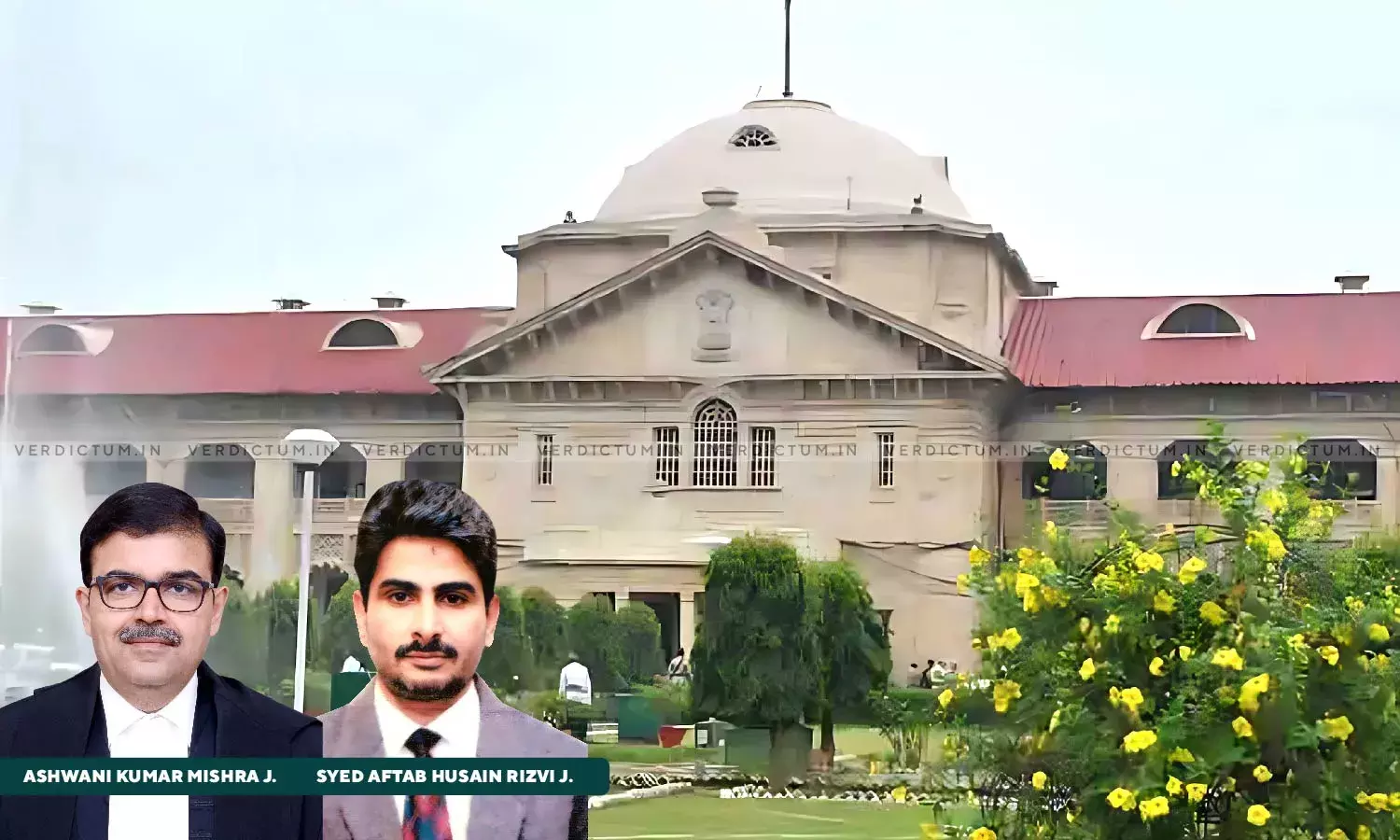2005 Ayodhya Terror Attack| Liberty Must Be Respected While Balancing State’s Interest To Maintain Order: Allahabad HC Grants Bail To 4 Accused

The Allahabad High Court has granted bail to four men in 2005 Ayodhya terror attack case saying that the liberty of individuals must be respected while balancing the competing interest of the State to maintain order in the society.
An application for suspension of sentence and grant of bail was moved on behalf of the appellants/accused who were convicted for the offences under Sections 302/120B, 307/120B, 153A/120B, 153B/120B, 295/120B, 353/120B IPC, Sections 18, 19 and 20 of the Unlawful Activities (Prevention) Act, 1967 read with Section 120B IPC and Section 4 of the Prevention of Damage to Public Property Act, 1984 read with Section 120B IPC.
A Division Bench comprising Justice Ashwani Kumar Mishra and Justice Syed Aftab Husain Rizvi observed, “It is also admitted to the prosecution that none of the accused appellants have any criminal history and they are languishing in jail for the last more than 18 years. … We are also mindful of the fact that long period of incarceration during the pendency of appeal has been viewed with concern by the Supreme Court in a series of orders/judgments. Liberty of the individuals would have to be respected while balancing the competing interest of State to maintain order in the society.”
Advocate M.S. Khan appeared for the appellant/accused while Additional Advocate General P.C. Srivastava appeared for the respondent/State.
In this case, the maximum sentence awarded to the accused persons was life imprisonment. In 2005, in the morning, a jeep stopped near the Jain Temple at Ayodhya whereafter a blast occurred in the jeep itself. Five heavily armed terrorists then attacked the premises popularly known as 'Ram Janmbhoomi Sthal' and the security forces retaliated. The firing continued for almost two hours and all five terrorists were silenced and one civilian also lost his life in the blast. An FIR was registered and various senior officers arrived at the place of occurrence and after firing from the side of the terrorists ceased for over half an hour, the combing operations commenced by the security personnel.
Terrorists whose dead bodies were found at the place of occurrence were armed with AK- 47 rifles and live cartridges, rocket launchers etc. Details of the firearms and the ammunitions carried by each of the five terrorists were specified in the FIR. The FIR apart from referring to the firearms and other ammunitions/cartridges etc. did not refer to any recovery of mobile phone from any of the slain terrorists. The Trial Court on the basis of evidence led on record delivered a detailed judgment holding that the prosecution succeeded in establishing its case beyond reasonable doubt mainly relying upon the recovery of Nokia mobile handset.
The High Court in view of the above facts noted, “A period of more than one year has expired since the order of the Supreme Court and therefore, we are of the view that the prayer made by the accused persons for consideration of their first bail applications is liable to be considered since hearing of the appeal may take some more time as the comprehensive paper book is not ready and its preparation may require some more time.”
The Court further said that it is a case of terrorist attack at a significant religious place, wherein five terrorists have been shot dead and an innocent person has also lost his life and therefore, the incident, is grave and serious which must be treated as an attack on the civilized society.
“All four accused appellants have been implicated in the offence as conspirators. The aspect of conspiracy is asserted by the prosecution relying upon the recovery of a mobile handset from one of the terrorists, who had been silenced on the spot. The prosecution case is that the mobile handset recovered from the spot was used in various SIM card numbers and through a process of call detail records, all the four accused persons have been connected to the recovered mobile handset and thereby implicated in the matter”, observed the Court.
The defence argument was that the recovery of handset itself is not proved and is planted. The Court in this regard said that it is not required to return any definite finding on this aspect as detailed appraisal of the evidence led during trial, on such aspect, would be required at the time of hearing of the appeals.
“However, we do find that prima facie arguable points are raised in the appeal on the aspect relating to the factum of recovery of the mobile handset. Other legal issues have also been raised including evidentiary value of call detail records particularly as there is no certificate produced in terms of Section 65B of the Evidence Act”, held the Court.
Accordingly, the High Court granted bail to the accused and listed the matter for further hearing on December 4, 2023.
Cause Title- Shakeel Ahmed v. State of U.P.


